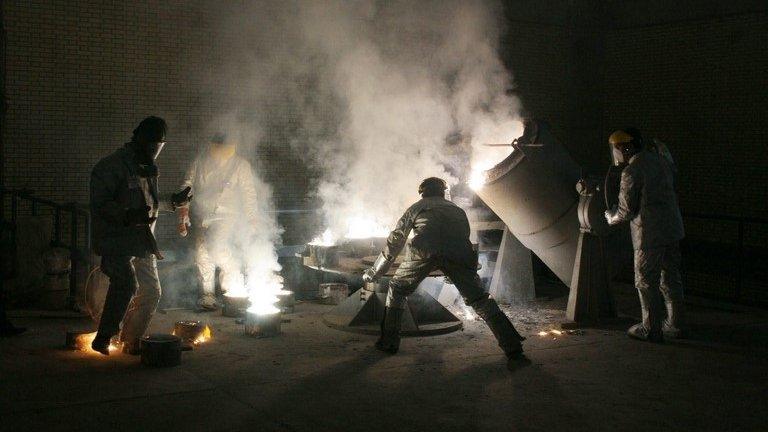Could Congress derail Iran nuclear deal?
- Published
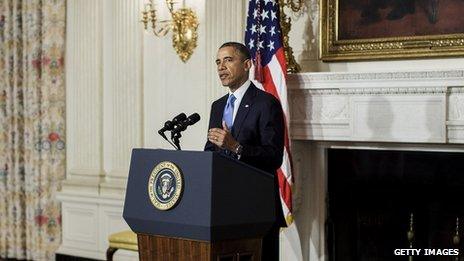
The deal is a political risk for President Obama
Ever since he came into the White House this question has loomed over President Obama: How to get Iran to give up what the West says is its quest for nuclear weapons without taking military action and potentially leading his war-weary country into a dangerous, unpredictable and open ended conflict?
It is a question that comes up as regular as clock-work in my chats with diplomats - is this the year that the world goes to war?
It seems there is at least a breathing space, for a few months. Unless Congress wills it otherwise.
President Obama clearly feels this deal may be the answer. Others at home and abroad will argue it is not - and that he is in danger of being hoodwinked.
Secret talks
A lot of effort has gone into this - some of it secret.
AP has a fascinating article, external detailing secret talks leading up to the deal. A senior Obama administration official tells us that there has been "a several-year" effort intended to "reinforce" the wider talks.
Allies are unlikely to mind this, unless they want to find offence. Which brings us to a vital question - what about Israel?
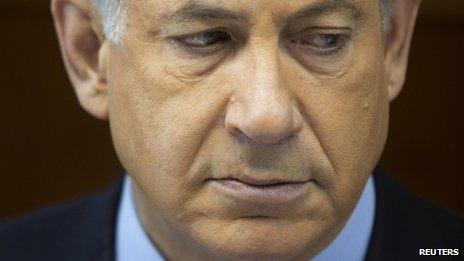
Israel's prime minister is opposed to the agreement with Iran
Particularly tricky is the obvious dismay of Israel's Prime Minister Benyamin Netanyahu - he's branded the deal "a historic mistake, external" - and this will embolden the president's critics at home who may claim he has betrayed Israel - always a potent charge in American politics.
It is clear from the initial reaction , externalthat many will take some convincing that this is a good deal.
Politicians in congress have been planning new sanctions and show every sign of pressing ahead with them, external.
A couple of days ago the Democrat leader of the Senate Harry Reid said, external:
"I will support a bill that would broaden the scope of our current petroleum sanctions, place limitations on trade with strategic sectors of the Iranian economy that support its nuclear ambitions, as well as pursue those who divert goods to Iran."
This is critically important.
A senior Obama administration official is warning that "the introduction of new sanctions would, we believe, derail the agreement".
Although technically Obama could veto any new sanctions that would be politically very awkward. Determined senators might find a way to bundle them in with other laws the President wouldn't want to stop.
'Nuclear option'
Once again Congress finds itself in a position where it can bring Mr Obama's plans crashing down in flames. Their opposition derailed his plans to attack Syria, external (although for that he may have been grateful).
It brought about a government shutdown and took America to the brink of what some warned was "economic Armageddon, external".
It has stopped his plans for gun controls and immigration reform.
The recent decision of Senate Democrats to scrap the filibuster, external for some important deals has only sharpened the sense of hyper-partisan dysfunction.
This was called, in a good example of beltway linguistic inflation, "the nuclear option". It may play into Iran's very real nuclear option in an unforeseen way.
Going on the evidence Mr Obama must know of the risk he is now taking.
The gamble that Iran will keep its word is one thing.
The gamble that Congress will do as he wishes is quite another - not one I would like to take a bet on.
- Published24 November 2013
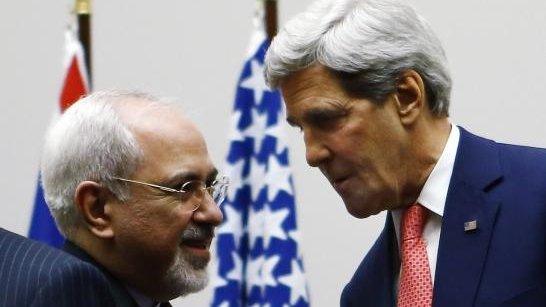
- Published20 January 2014
- Published24 November 2013
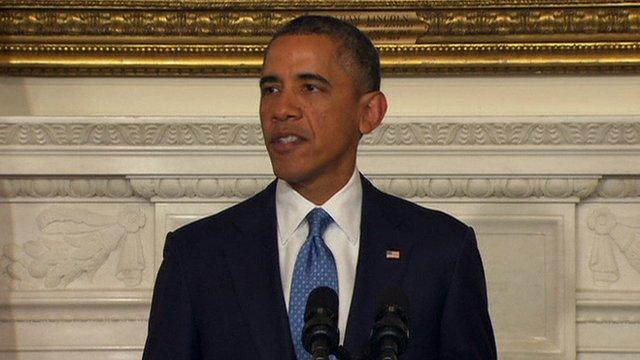
- Published25 November 2014
